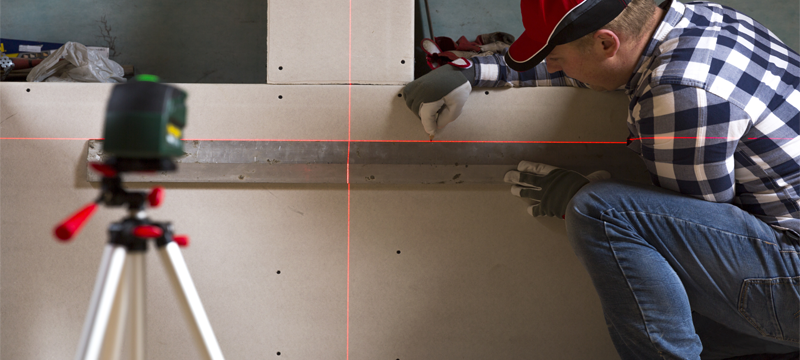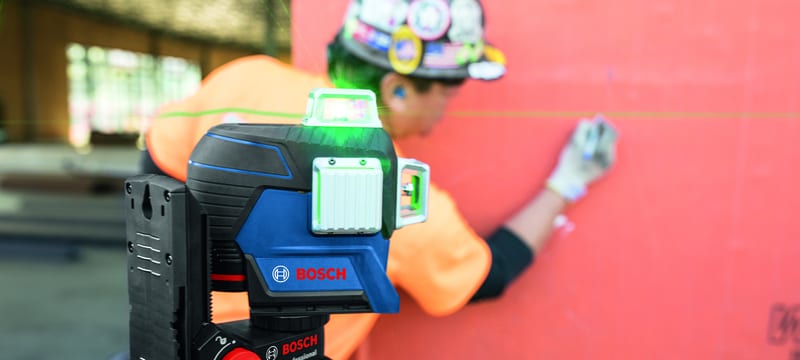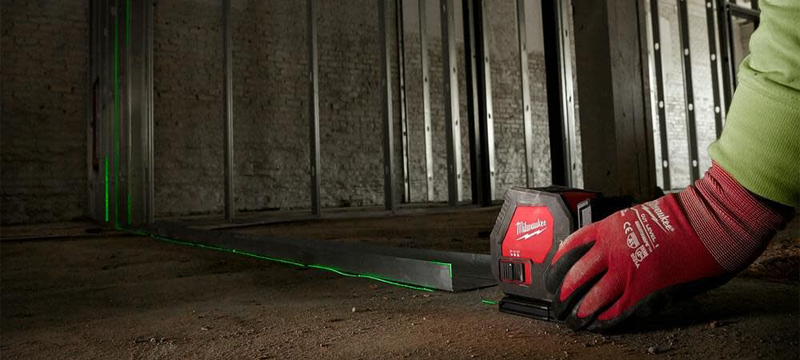A laser level is an electronic device, typically used for leveling and aligning applications, that projects a green or red beam along the vertical and horizontal plane.
Laser levels work using a focused beam of light to a specific point of reference to create a straight line. This straight line helps with marking and measuring exact points.
Laser levels can be used for any task that involves leveling – whether on a commercial job site or for a DIY home improvement project.
The types included in the laser-level category of tools are the following: Dot Laser Level, Cross-line Laser Level, Rotary Laser Level, Combination Laser Level, and 3-Plane Laser Levels. Please see below for more information and a guide on each of these!
Laser Level Types: More Information
Dot Laser Level
Dot Laser Levels, sometimes called Spot Lasers, cast two, three, or five lasers. This allows the user to create a point from floor to ceiling, a level point of reference, and a 90° reference point.
Recommended: Johnson Level Self Leveling 3 Dot Laser (40-6646)
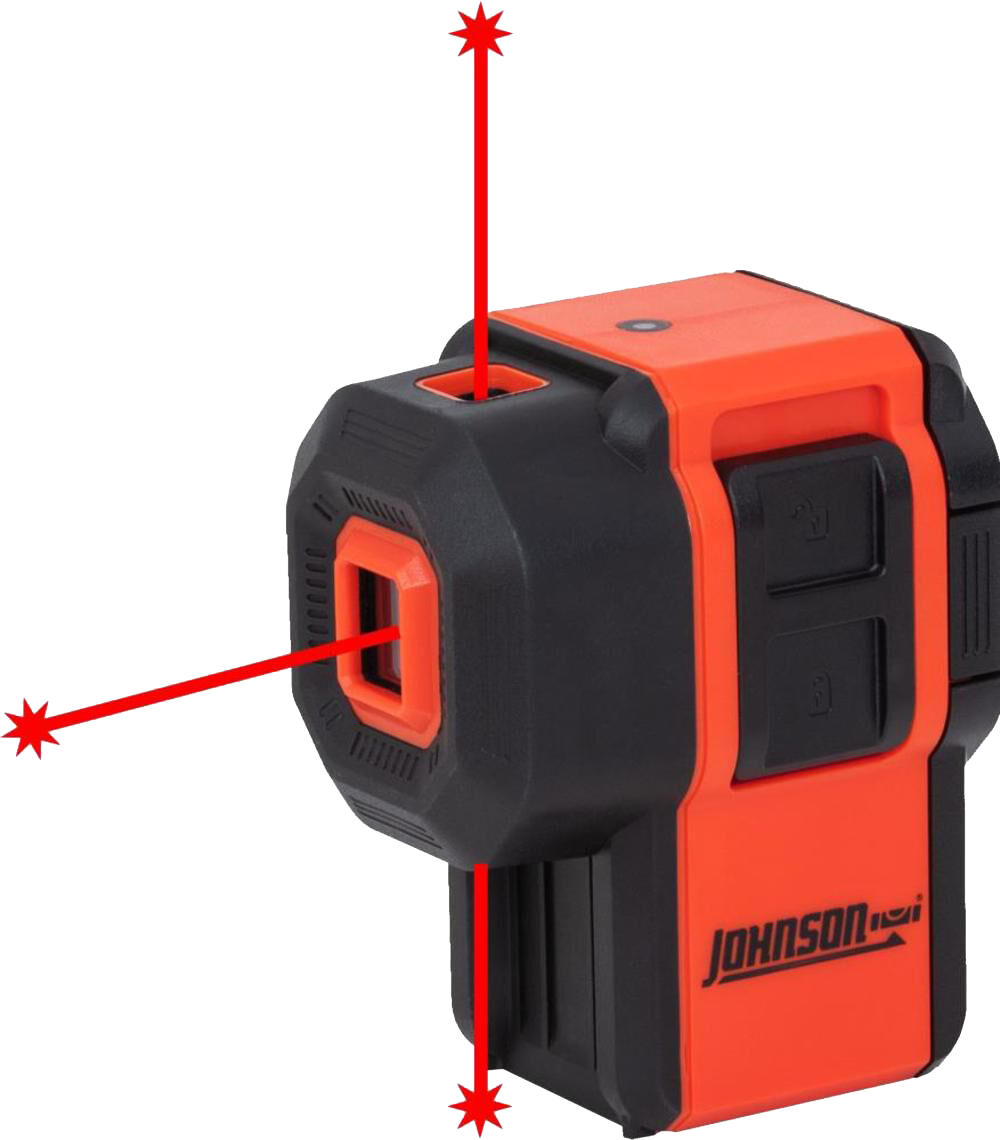
Cross-line Laser Level
Cross-Line Laser Levels produce horizontal and vertical laser levels, individually or simultaneously.
Recommended: Milwaukee Green Cross Line Laser (3421)
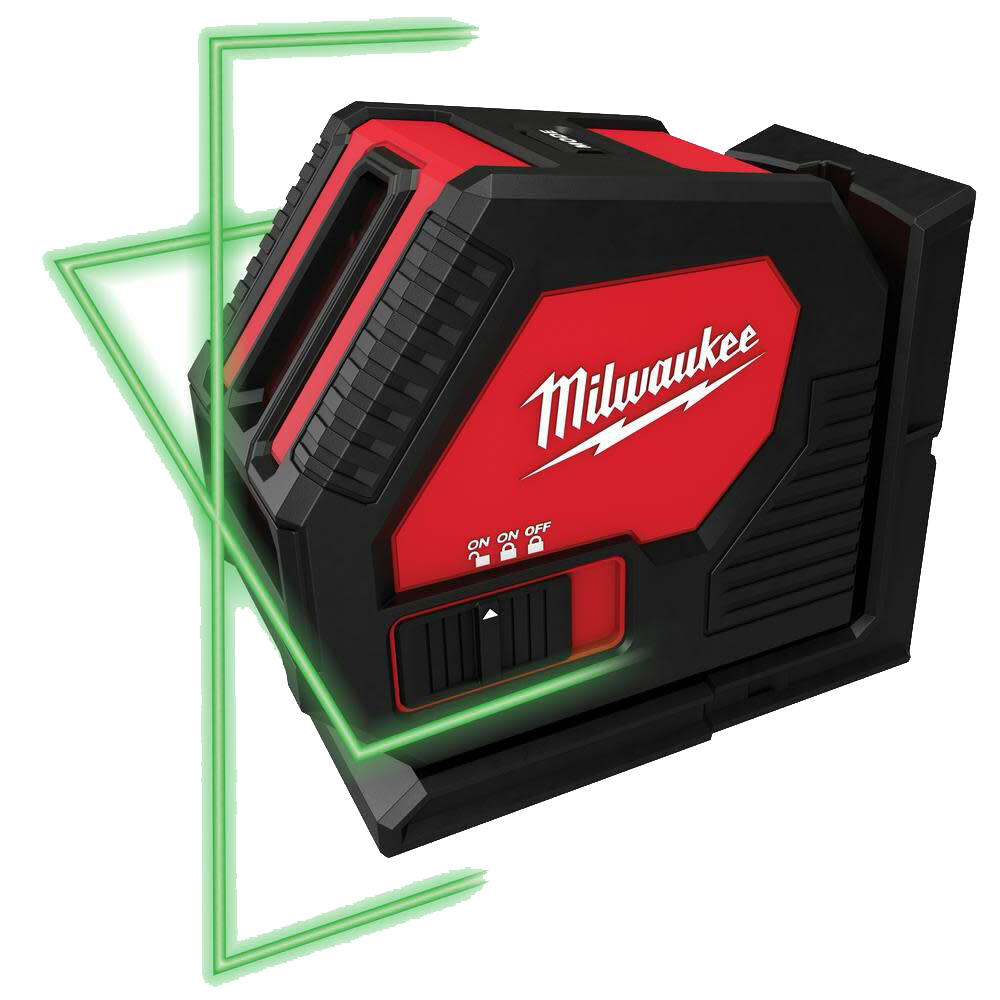
Rotary Laser Level
Rotary Laser Levels, also known as Rotary Lasers, use a beam of light that spins so quickly that it gives the illusion that it’s one solid 360° plane. These planes can be horizontal or vertical.
Recommended: Bosch REVOLVE2000 Self-Leveling Horizontal/Vertical Rotary Laser Kit (GRL2000-40HVK)
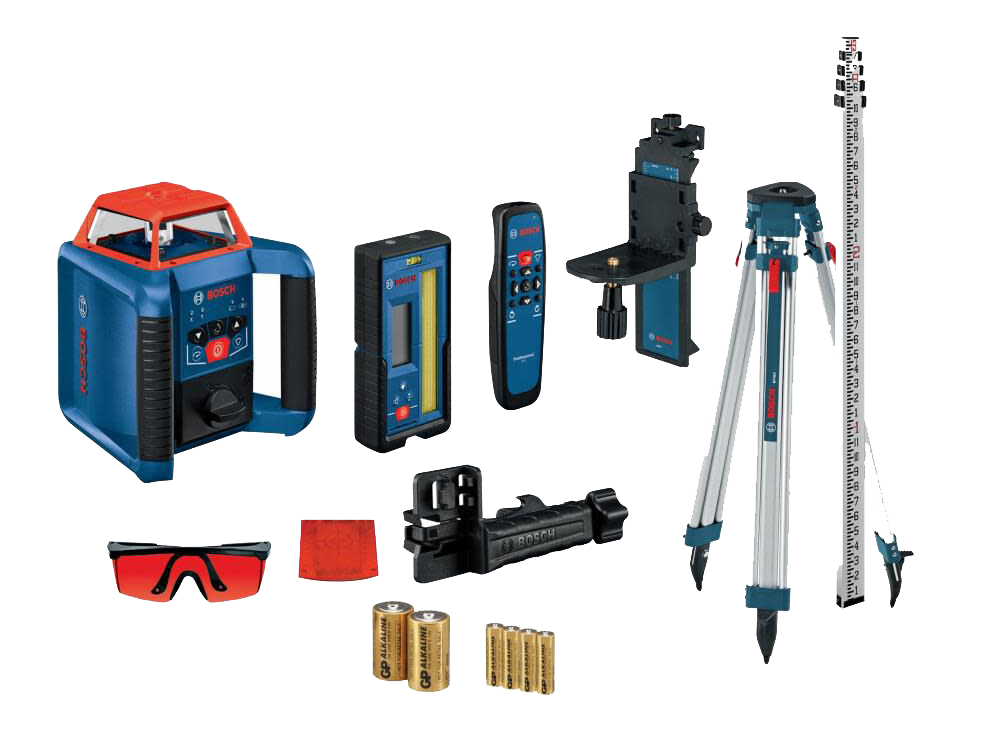
Combination Laser Level
Combination lasers project both spots and lines independently or simultaneously.
Recommended: Johnson Level Red 5-dot and Green Cross-line Combination Laser (40-6688)
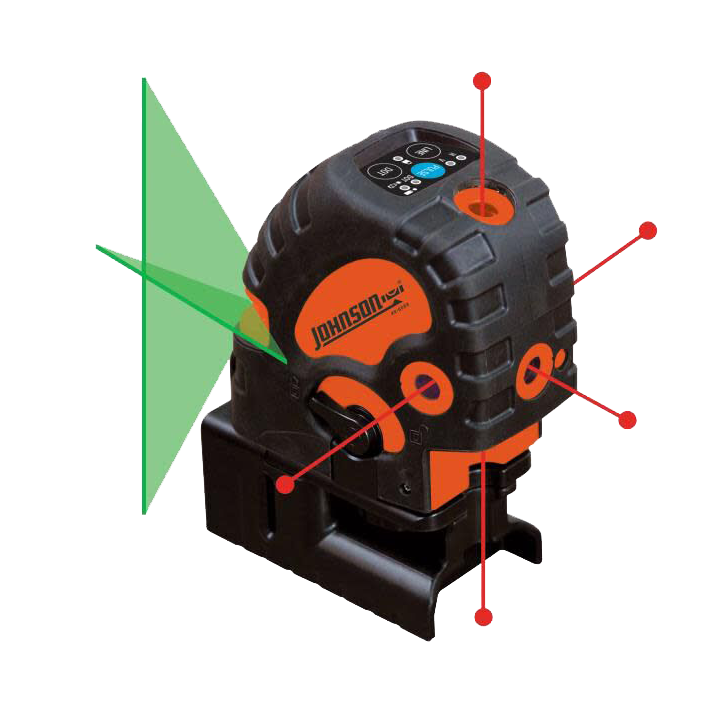
3-Plane Laser Level
3-plane laser levels use three vertical and one horizontal projection line beam. The vertical lines cross, creating a 90° angle.
Recommended: Makita Self-leveling 360° 3-Plane Green Laser Kit (SK700GDNAJ)
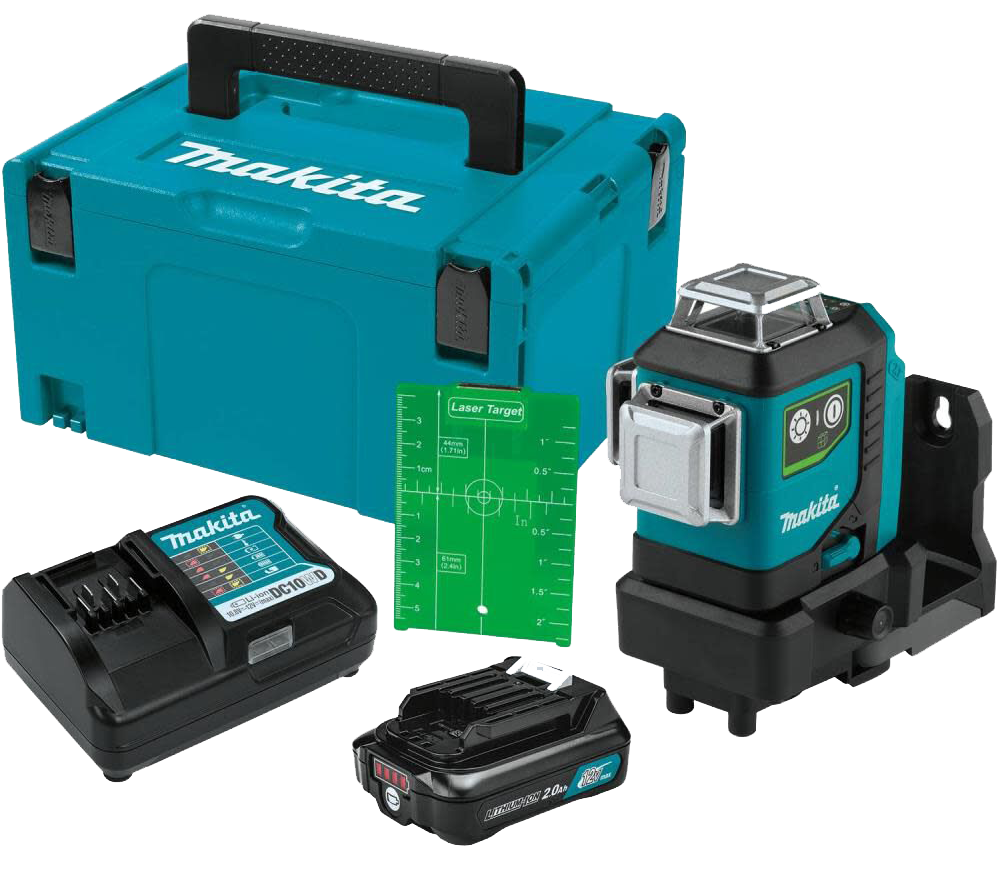
Laser Level Accessories
Laser level accessories can make using laser levels on the job site easier and more efficient. Accessories can include tripods, laser detectors, grade rods, and more.
Tripod
A laser level tripod is a three-legged stand that is important in furnishing a foundation for laser levels and other leveling instruments.
Laser Detector
Laser detectors, sometimes known as laser receivers, work to detect the laser beam when working outside. They give a visual or audible signal to indicate if you’re on-, above-, or below-grade.
Grade Rods
Grade rods, or leveling rods, are graduated rods used to determine the differences in elevation.
Things to consider when purchasing a laser level
Indoor vs Outdoor use
Indoors: If you’re using your laser level primarily for indoor use, such as drywall, drop ceiling installation, and partition installation, you’ll want a laser that can be used without a laser detector. Red or green beams can be used indoors.
Outdoors: If you’re mainly working outdoors on jobs like grading, trenching, and setting concrete, you’ll want to use a laser detector, as beams can be lost in the sunlight. Green light beams are brighter than red light beams and can be more easily seen by the human eye, which makes them better for outdoor use.
Self-leveling vs manual leveling
Manual leveling laser levels require you to level the laser yourself by adjusting the screws on the base to center the level vial. Moreover, a self leveling laser level will find a level on its own within a specific range. The manufacturer determines the range for your laser level, and can be found before purchasing.
Green laser vs red laser
While there are no notable differences in the accuracy of red vs green laser levels, there are differences in price, brightness, and battery life.
- Price: Green light laser levels are commonly more expensive than red light laser levels.
- Brightness: Green laser beams appear brighter and typically have a crisper or sharper line.
- Battery life: Red laser levels generally use less than green laser levels.
Other Frequently Asked Questions
Can the laser hurt my eyes?
You’ll want to ensure laser levels never shine in someone’s eyes. If it happens occasionally, it won’t cause damage; however, prolonged exposure is not recommended.
How often should a laser level be calibrated?
It’s recommended to calibrate them every six months or if there is a sudden change in accuracy. If the unit has been treated roughly, i.e., knocked over or dropped, it’s suggested to calibrate immediately.
How can I tell the accuracy of a laser level?
Testing a laser level on a surface you already have the readings of is the best way to determine accuracy.

